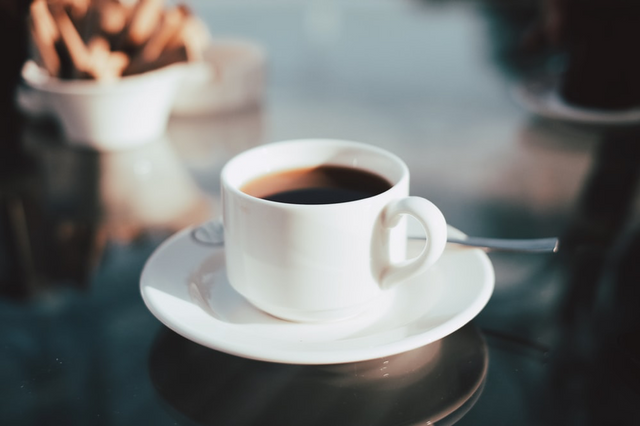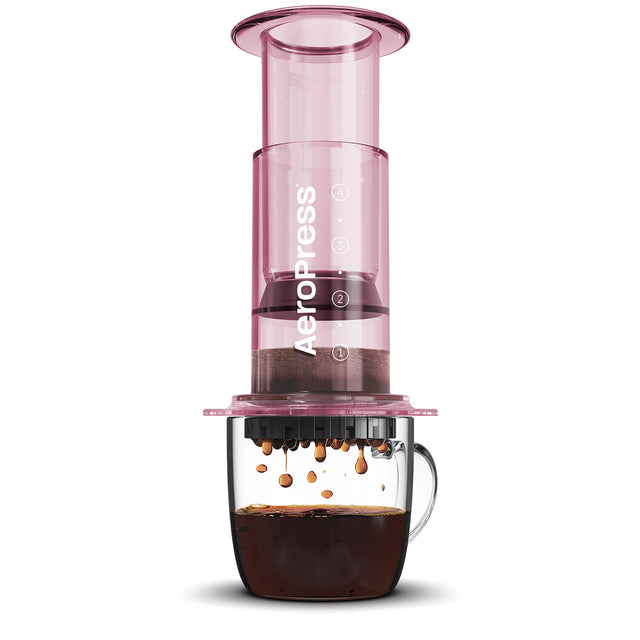What Makes the Perfect Cup of Coffee
We all have our personal preferences when it comes to our coffee-based beverages, but the key ingredients will remain much the same. A huge variety of factors and influences can have a drastic effect on how these ingredients present themselves in our brew. We take a look at the optimum conditions for each ingredient, and how you can use this to make the perfect cup of coffee.

Coffee Beans
Of course, you cannot make a cup of coffee without the beans! One of the two absolutely essential ingredients for a cup of coffee (the other being water), coffee beans need to be as fresh as possible for the perfect cup of coffee. Coffee beans ideally need to be used within a few weeks of being roasted, if you’re serious about getting the best from your brew.
It is essential to grind them fresh before you brew your coffee, rather than buying pre-ground beans. This is because the delicious flavours of the coffee bean weaken over a short period of time, due to oxidation, CO2 depletion and contact with moisture. All three of these factors reveal that coffee needs to be freshly ground and that beans need to be stored in an airtight container before use:
Oxidation
Oxidation is the process by which the complex flavour and aroma compounds within a coffee bean begin to change when in contact with air molecules. A little bit of oxidation is good for coffee when it is first ground, as the process can draw out some of the delicious aromas and flavours hidden within your beans. However, these flavours will degrade quite quickly once oxidation begins, leaving you with a much duller cup of coffee.
CO2
CO2 is responsible for transferring the oils from the coffee beans into coffee. When the beans are ground, the surface area of the coffee increases, which means that more CO2 can be lost quicker. If your coffee beans are not properly stored, and ground coffee is left for more than a few hours, this transference of the flavourful oils will not work as well, which could negatively impact on your coffee’s taste.
Moisture
The oils in coffee beans are water-soluble – that’s why we dissolve ground coffee in boiling water to make a brew. However, a full cup of water is not required to begin dissolving these oils. In fact, even the moisture in the air can be enough to dilute the flavourful oils. When the beans are ground, more surface area is created, meaning that there is more contact with the moisture in the air, which quickens the dilution of the oils.
When the coffee is ground, you need to find the optimum coarseness. The grind is needed to maximise the surface area of the coffee, as this makes the extraction easier. However, if the coffee is too finely ground, then it can be over-extracted and taste bitter.

Water
While you may be under the impression that water won’t contribute much to the flavour, texture and aromas of a cup of coffee, the fact that coffee is made up of 98% water means that it actually has a major impact on your resulting brew.
Although water itself is tasteless and odourless, the minerals within the water, such as magnesium, calcium and sodium can alter the way your coffee tastes. There may also be traces of chlorine in tap water, which can have negative effects on your coffee. Ideally, your water will contain traces of magnesium and calcium, as this can help to further extract flavour from coffee beans. However, if your water contains sulphates and chlorides, the coffee will taste bitter. Where you are located will perhaps have the biggest effect on the quality and contents of your water. Because of this, many coffee lovers will use filtered water or bottled water to achieve the ideal water conditions. A water filter can remove impurities from the water, as well as any chlorine.
Water Temperature
The temperature of the water used is also particularly important for brewing your coffee right. A temperature of around 91C is required to dissolve the coffee in the water, but it is a fine line between too hot and too cold. If the water is too hot, then too many acids will be released, and the coffee will taste sour. Conversely, if the water is too cold, then not enough of the coffee grounds will be dissolved, leaving you with a weak brew.
Water Amount
As well as the type and temperature of the water, the amount is also key to making the perfect cup of coffee. While it is often down to personal preference, brewing method or recipe, a water to coffee ratio of 1:15 is often considered the best for extraction.

Milk
Many coffee lovers say that if you can make a perfect cup of coffee, you won’t need to add any milk at all. While that may be the case, some people do like to add a splash of milk to their cup to make it sweeter and creamier. If you like a milky coffee, then there are a few ways you can make it better for your brew.
Fat Content
One of the most noticeable, and easiest to control, aspects of milk for coffee is the fat content. The fat in milk helps to mask any bitter or acidic tones, so if you haven’t managed to make yourself the dream cup of coffee, a splash of milk can really do wonders for hiding any bad tastes. If this is the case, then you want a higher-fat milk, as low-fat milk is less creamy and does not cover acidity as well. Because of this, some baristas choose to take it to the next level when creating a creamy latte, using 12% fat milk – considering full-fat milk is usually 3.5%!
Steam and Foam
Lattes and Cappuccinos are some of the best-loved coffee beverages in the UK. When you steam milk, the temperature rises and the solubility of the lactose increases, which makes the coffee sweeter without needing to add sugar. To create a good foam, you need the protein from cow’s milk to get a good frothy coffee. Many plant-based milks struggle to produce a strong foam, making vegan cappuccinos a little trickier to create. However, there are many vegan alternative milks available, with Oatly’s Oat Drink Barista Edition being popular with coffee lovers.
If you want to make perfect coffee when you’re out and about, then the AeroPress on the go coffee maker is the ideal choice.


1 Comment
Muchas gracias. ?Como puedo iniciar sesion?